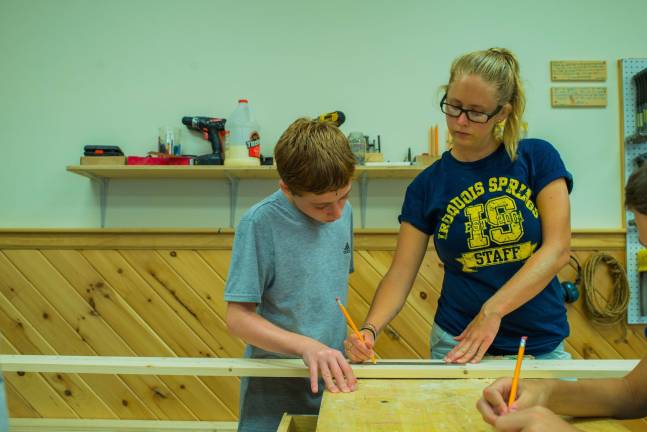the best first job

There is no other experience that can better prepare a young person with the skills and experiences they will need at a 21st century job than working as a counselor at camp.
Sam Borek, owner and director of Woodmont Day Camp in New City, NY feels the value of the working at camp for a teen or young adult truly can’t be measured. “For many, it’s their first interview, first job and the first time they are taking responsibility for themselves. Camp is the ideal place to allow young adults to learn and grown in a safe and nurturing environment.”
According to research by the Partnership for 21st Century Learning, an organization comprised of leaders in the business community, education field and policymakers including Apple, Microsoft, Cisco Systems and the U.S Department of Education, soft skills are what 21st century employers are looking for in future employees. LinkedIn recently conducted research to determine which skills hiring companies need the most in 2019. Their research shows that all are skills young people gain while working as a camp counselor: time management, adaptability, collaboration, persuasion and creativity.
“From following a set schedule to having to adapt activities at the last minute to making sure campers are following directions, counselors are gaining soft skills daily working at camp,” says Borek.
There is no substitute for in-person interactions, and at camp, campers and staff are constantly communicating. “In today’s technological world, we are moving further away from face-to-face communication. In the camp environment, counselors don’t spend their days “liking” a photo on their phone. Instead, they are having conversations over meals and on the fields about what they liked and didn’t like,” says Alicia Skovera, director of camping and year-round programs for the Fresh Air Fund, an organization that provides free summer camp experiences for NYC children at five overnight camps in Fishkill, NY. “Staff are also practicing communication by setting up expectations for children, explaining how an activity is done and by helping young people communicate their own needs.”
Working at camp exposes young people to others from different towns, states and countries. Learning to live and/or work with others from different backgrounds helps prepare young people for college and the workplace — and become part of a caring community. “You may not be able to travel the world but camp brings the world to you,” says Skovera. “Counselors learn how to live with other people and are exposed to new ideas. They learn that they may not like everyone, but they practice how to get along with everyone.”
Borek says, “While young people and parents tend to think that working at camp is ‘not a real job,’ I’d argue that it is the most ‘real’ job that you can find. Staff learn how to balance their needs with those of others, how to work together to solve a problem and how to connect with others on a face-to-face basis rather than a digital one.”